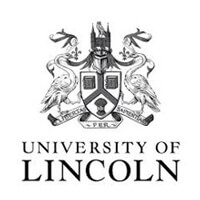fees waived
Chemistry with Mathematics, BSc (Hons)
University of Lincoln, United Kingdom
Subject ranking
UK / Guardian 2025 7th
UK / Times 2025 30th
UK / CUG 2024 32nd
Costs
food & rentS$17.1K / year
Entry requirements
Scholarships
4 available
Unlimited quantity
Unlimited quantity
Unlimited quantity
Unlimited quantity
Limited quantity
Limited quantity
Information
Code
Code
Intakes
Website (External)
Programmes
Information
Duration
2028
This joint degree enables students to explore the interplay between chemistry and mathematics, highlighting their key roles across various contexts. Participants gain comprehensive knowledge of chemistry, including practical training in both disciplines, such as programming, computation, and data analysis. The curriculum covers core chemistry topics like synthetic methodologies, molecular characterisation, laboratory techniques, molecular structure, bonding, mechanisms, and electronic structure with spectroscopy and reactivity in p-block compounds. Students engage with industry professionals through interdisciplinary projects with national and multinational companies to enhance employability, with the latest module details available on the programme's website.Assessment varies by module and may include coursework like dissertations or essays, written and practical exams, portfolio development, group work, and presentations. Instruction is provided by professors, senior lecturers, researchers, practitioners, visiting experts, and technicians, with peer support integrated into the learning process.
Students can cover core chemistry subjects, which can include synthetic methodologies and molecular characterisation; laboratory techniques; molecular structure, bonding and mechanism; and electronic structure, spectroscopy and reactivity in p-block compounds. Throughout the programme, students will have opportunities to engage with industry professionals to develop professional practice that enhances employability. Challenges based on industry-led, interdisciplinary projects are undertaken throughout the programme with national and multi-national companies. For the most up to date module information, please visit the course page for this programme on our website.
A local representative of University of Lincoln in Singapore is available online to assist you with enquiries about this course.

